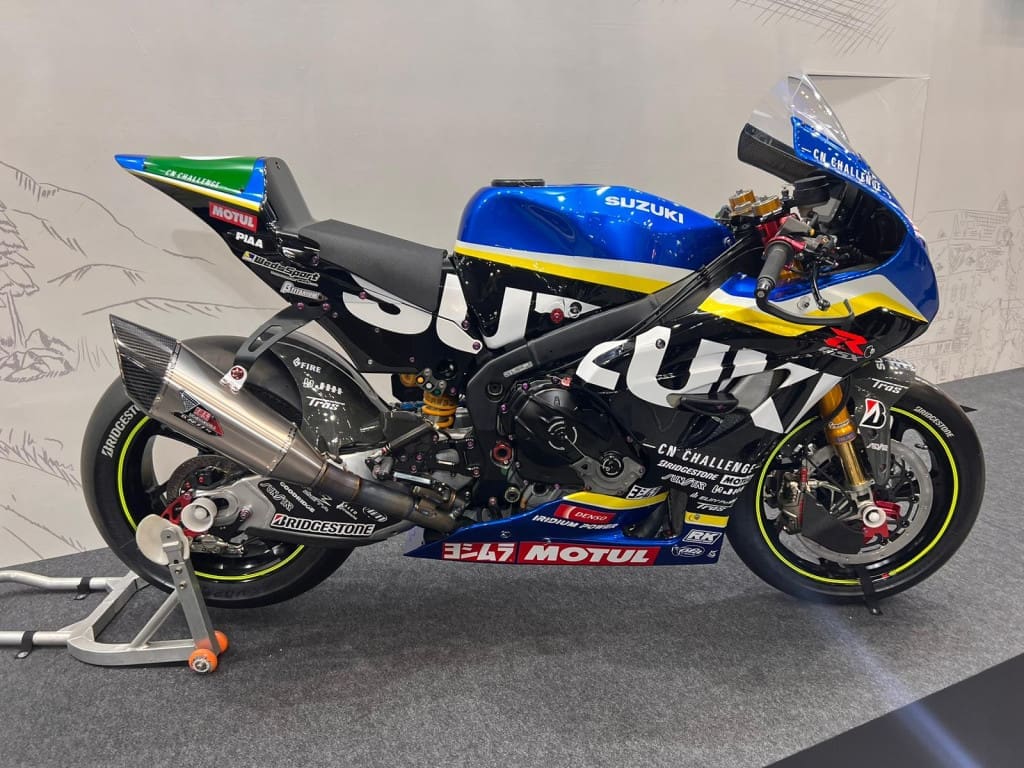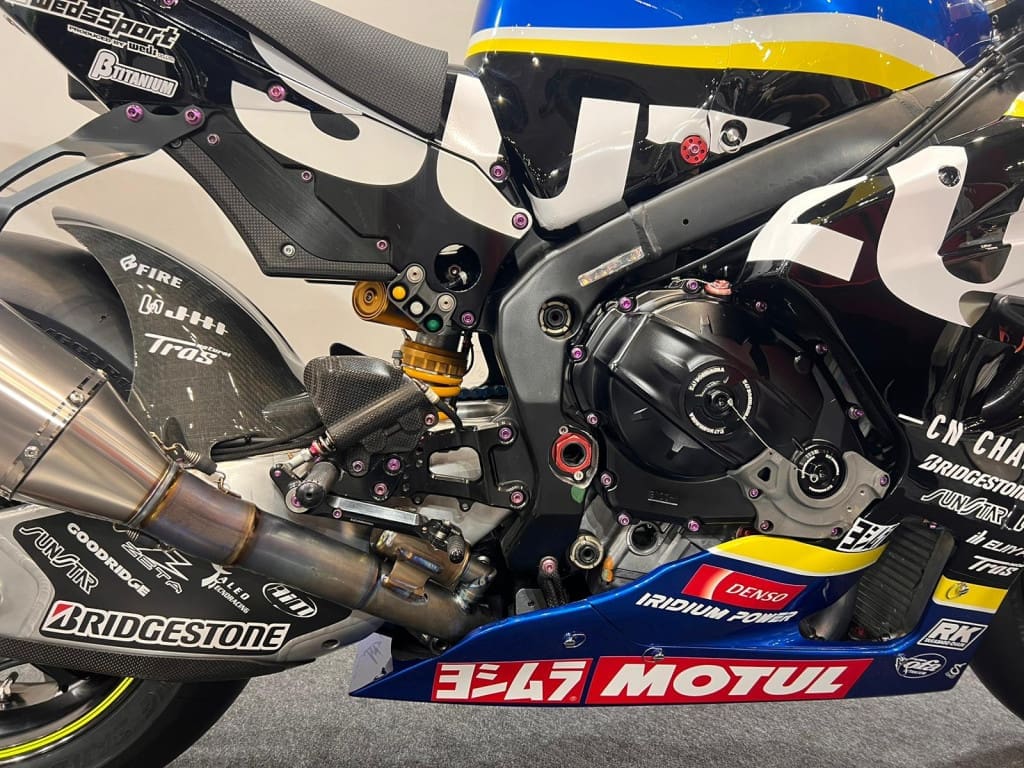It may be difficult to fathom, but nearly two years have passed since Suzuki’s surprising declaration to withdraw completely from worldwide motorcycle racing. However, as dedicated followers of the FIM Endurance World Championship are aware, this decision did not come to fruition.
As December rolled around, Suzuki made another big announcement. The Yoshimura SERT (Suzuki Endurance Racing Team) would continue competing in the series until 2023. Throughout the four-race season, the team consistently improved their performance, finishing 7th at Round 1 – the 24 Heures Motos; 4th at Round Two in Spa; 11th at the Suzuka 8 Hours; and ultimately claiming a remarkable victory at the Bol d’Or to conclude the season.

Demonstrating a deep-rooted passion for racing, a team consisting mainly of Suzuki employees has united to create Team Suzuki CN Challenge, reinforcing the notion that a team may leave racing but never loses their love for it.
Teaming up with Yoshimura Japan, Team Suzuki CN Challenge members are set to participate in the 2024 Suzuka 8 Hours race with an Experimental Class motorcycle. The chosen bike, a Suzuki GSX-R1000R, will run on a unique “40-percent bio-sourced sustainable fuel.”
Like all other consumables and parts used in the FIM event, the FIM has approved this fuel. However, it is not the designated fuel for the EWC series, so the vehicle must compete in the Experimental Class.
Interestingly, the Experimental Class offers the Team Suzuki CN Challenge members a unique opportunity to explore various alternative components and techniques in pursuit of sustainable racing practices.
Team Suzuki CN Challenge has announced eight categories in which their bike incorporates sustainable components. These include Elf-sourced fuel, a Yoshimura Japan muffler, Bridgestone tyres made with recycled and recyclable materials, bio-sourced Motul engine oil, JHI’s recycled carbon fibre fairings, flax fibre composite fenders, heat treatment-free steel brake discs and low-dust brake pads from Sunstar, and an LFP lithium ferrous phosphate bike battery from ELIIY Power.

Green or not Green?
Per Team Suzuki CN Challenge, Elf Moto R40 fuel will be used, containing “40% bio-sourced material” without specifying its origin.
In 2023, the Guardian released an explosive investigative report revealing that Chevron’s biofuel production may release hazardous air pollution. The report stated that exposure to this pollution could result in a 25% chance of developing cancer over a lifetime.
In many aspects of life, it is natural to desire hope, but there are also valid reasons to approach things with skepticism.
Resisting the urge to come to a standstill and declare “I refuse to go” may be difficult, especially when the options given are far from ideal.
However, striving for perfection delays important progress. Who would want to do such a thing? Certainly not us.
In the February 1, 2022 edition of Applied Energy, a team of Spanish researchers examined 72 biofuels to gauge their sustainability. These fuels were sourced from various universities.
The research yielded a plethora of findings, including the importance of examining the sustainability of biofuels throughout their entire life cycle—from acquisition and manufacturing to utilization. The authors also emphasized the significance of carefully selecting the carbon source, emphasizing the need to take into account regional factors such as soil and climate before endorsing a particular type of biofuel.
Effective cost management at all levels, including environmental, societal, and economic considerations, is essential for achieving sustainability goals within and outside motorsport.


